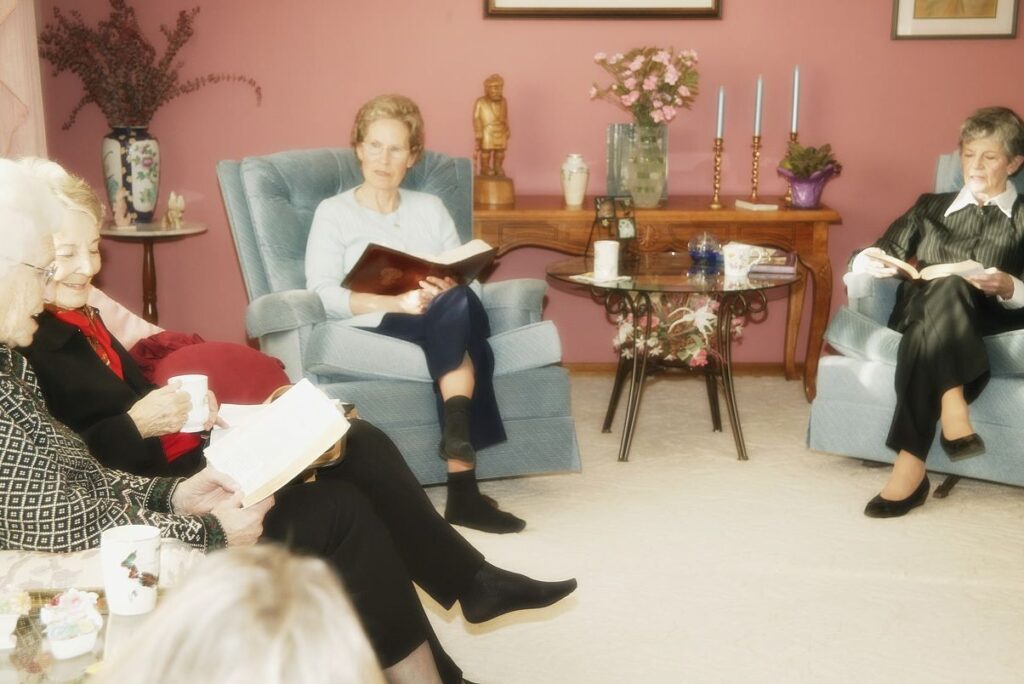
Starting Your Own Book Club
It’s easier than you might expect!
A book club brings together a group of people to discuss something they all have in common… a book everyone has read. Book clubs can be a whole lot of fun and provide a great social outlet for those of us in our “seasoned” years. Starting a book club is not difficult. All it takes is a few attentive readers, a book of interest to the group, a bit of planning, and a place to meet or a scheduled video chat.
A few tips for organizing a new book club…
Members
- A book club can include any number of people. You’ll want to make sure the group is small enough so everyone has a chance to join in the discussion, but large enough so the dialogue will be diverse and interesting.
- A book club can include any mix of ages, backgrounds, and personalities. You may want to limit your members to a certain age group or people living in a specific community. You may decide to blend in people from different generations or different communities. You may even decide you want an all-female group or an all-male group.
- Your book club membership can grow with time. You may start out with just two or three people, but that core group may bring in addition people as time passes. If you want to expand the group, you can always post a flyer at your local library, senior center, or book store. Don’t be discouraged if a member only stays for a meeting or two. It happens.
THEME AND STRUCTURE
- Some book clubs focus on one genre of literature, while others include many different types of books. It’s probably a good idea to let the members of the group decide whether or not there will be a consistent theme to the books you’ll be reading.
- When it comes to meeting structure, you may want to have a few guidelines in place. Many book clubs include time to discuss the book, time to enjoy a meal or snack, and time for general conversation and socialization. Very often, each meeting is hosted by one member of the club who also leads the discussion.
BOOK SELECTION
- When you’re just starting out with your book club, you may want to choose a book for people to read in advance of the first meeting. Or you may want to wait and use the first meeting as an opportunity for members to select the first book as a group. Some book clubs choose all their books via a membership vote. Some have the host of each meeting choose a book. Others follow the bestsellers list or use national book club selections.
SCHEDULE (TIME AND DATES)
- Many book clubs stick to the same time and the same day of the week. For example, Wednesdays at 11:30 a.m. or Tuesday evenings at 7:00 p.m. A group might meet once a week, every other week, once a month, or whatever arrangement fits best into the lives of its members. How long meetings last may be fixed or flexible. When starting out, you may want to plan for about two hours. Make sure to send a reminder email to members a few days before your first meeting. Moving forward, the host of each meeting can be responsible for distributing a reminder.
MEETING PLACE
- Book clubs often take turns meeting in members’ homes or they may meet in a public venue, such as a local library, senior/community center, restaurant, or coffee shop. Getting together in a public place is a good idea when the members of your club do not know each other very well or if some members are unable to host meetings in their homes. Meeting at different venues can be entertaining, especially if they somehow reflect each book you are reading. New locations might be selected by the host of each meeting or by the group as a whole. Of course, if your book club meets via video chat, there is no need for a meeting place.
REFRESHMENTS
- If meetings take place in members’ homes, the person hosting the event is often responsible for providing refreshments, which may be as simple as light appetizers or desert. Some clubs choose instead to have a pot luck meal, with each member bringing a food selection. If meetings take place at a restaurant or coffee shop, members can order their own refreshments. If meetings take place in a facility – such as a library or senior center – there may be rules that must be followed in regard to refreshments. For video chat meetings, members choose whether or not to enjoy their own refreshments.
DISCUSSION QUESTIONS
- Discussions often run more smoothly if you have a few questions prepared to start the ball rolling. You can find discussion questions in the back of some books. Some libraries offer lists of questions for popular books. You can also come up with your own general questions that apply to almost any book you may decide to read. Here are a few examples:
– What is the book’s message? Is the author trying to say something specific to readers? Was there a lesson to be learned?
– Are the characters in the book believable? Can you relate to them? Do they evolve throughout the story?
– Was the setting of the book significant to the story? Was it unique? Was it realistic? Did the setting serve as another character in the story? Did the author paint a detailed picture for readers?
– Did the culture or era described in the book come across as authentic? Was it well represented? Were there facts included to help bring it to life?


Age Adds Flavor
We are not old, we are seasoned!
Don’t forget to visit us on FACEBOOK!
